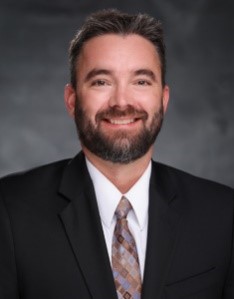Psychosocial Rehabilitation
Improve People's Lives
With the Person-Environment-Occupation framework.
During the summer of 2024, experts from Duke University and the University of North Carolina at Chapel Hill provided a series of trainings focused on engaging individuals through psychosocial rehabilitation. Each session was recorded and has been made available for viewing until August 1, 2025. BHTP won't issue continuing education to those viewing the recording.

View Training
Watch recorded sessions in both introductory and advanced psychosocial rehabilitation to learn and apply the person-environment-occupation framework.
audience
Designed to aid CSP, CCS and CRS staff in implementing recovery-oriented support services to those they serve.
Evaluation Tool
View the recorded Introduction to the Profile of Participation (PoP) to learn about the tool, which helps to identify meaningful intervention targets.
Building Participation: Introduction to Psychiatric Rehabilitation
Training was held in June 2024. The recorded presentations will be available for one year, expiring on August 1, 2025. BHTP won't issue continuing education hours to those viewing the recordings.

People receiving community-based services want what we all want: have a home, have friends and family and have something to do, including a job! Beyond addressing symptoms, enhancing community participation and life skills is often what is helpful for people as they seek to meet their personal goals. Improved participation and independence are also about modifying the environment to remove obstacles and shaping the task to be the best fit with the person. In this workshop, we will introduce attendees to how to apply the person-environment-occupation framework in both the assessment and delivery of interventions and supports to people as part of psychiatric rehabilitation. Throughout, we will speak to the role of strengths-based, person-centered work that also attends to stages of change readiness.
Building Participation: Advanced Psychiatric Rehabilitation
Training was held in July 2024. The recorded presentations will be available for one year, expiring on August 1, 2025. BHTP won't issue continuing education hours to those viewing the recordings.

Using more case-based consultation, role-playing and demonstrations, we will lead attendees through exercise so they may apply knowledge gained during the Introduction to Psychiatric Rehabilitation workshop. We will concentrate more specifically on assessing and addressing individuals’ tendency towards boredom and social isolation, both of which are risk factors for housing placement failures.
Introduction to the Profile of Participation
Training was held in September 2024. The recorded presentations will be available for one year, expiring on October1, 2025. BHTP won't issue continuing education hours to those viewing the recordings.

The Profile of Participation (PoP) is a tool community mental health providers can use to evaluate a full range of client life domains that reflect daily life participation and functioning. Data gathered with the PoP can be used to identify areas in which people are not satisfied with their current level of participation, which includes social connections, community integration and employment. It also directs providers to attend to safety concerns that may impede success with independent housing. Successful use of the PoP will help service providers understand what is most meaningful to their clients including what intervention targets will lead to the most gains for their clients. This thee-hour workshop will describe the purpose of the tool, how to use it in practice, and how to use the information to identify meaningful intervention targets.
Dr. Antoine Bailliard

Dr. Antoine Bailliard is an Associate Professor in Orthopaedic Surgery at Duke University School of Medicine. He earned an M.S. in Occupational Therapy and a PhD in Occupational Science at the University of North Carolina at Chapel Hill. Dr. Bailliard uses participatory methods to partner with people with lived experience with mental illness to design and implement research activities and in the development of tools and programs that improve the health, wellbeing, meaningful participation, and community integration of persons with serious mental illness.
Dr. Bailliard’s clinical experience spans from working in acute inpatient mental health, chronic inpatient mental health, and community-based mental health settings. Currently, Dr. Bailliard is Co-Principal Investigator of a 5-year $2.4 million federal grant from the Substance Abuse and Mental Health Services Administration to design an innovative assertive outreach team to meet the needs of adults with serious mental illness who are homeless or at risk of homelessness. He is a consultant and trainer for the Institute for Best Practices at the Center for Excellence in Community Mental Health at UNC-Chapel Hill.

Have Questions?
We are here to help! Please contact BHTP by email at bhtp@uwgb.edu or via phone at 920-465-2101 and Theresa Mullen or one of our other team members will be there to answer your questions.